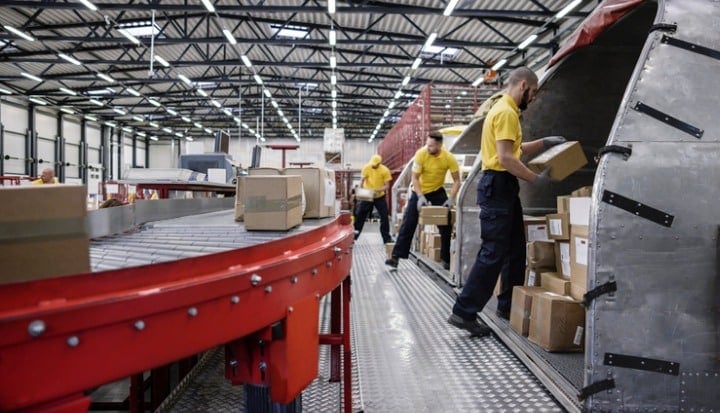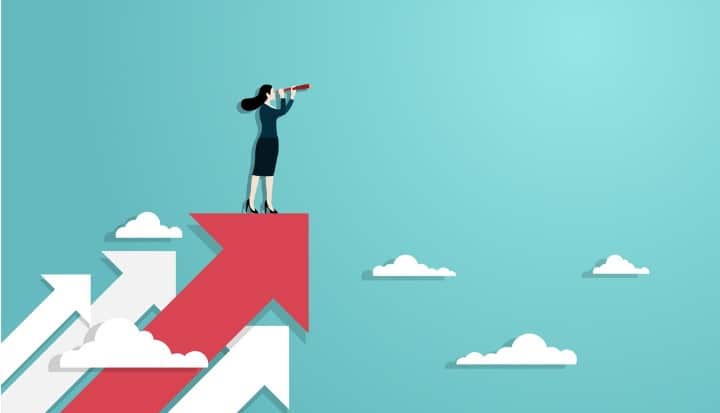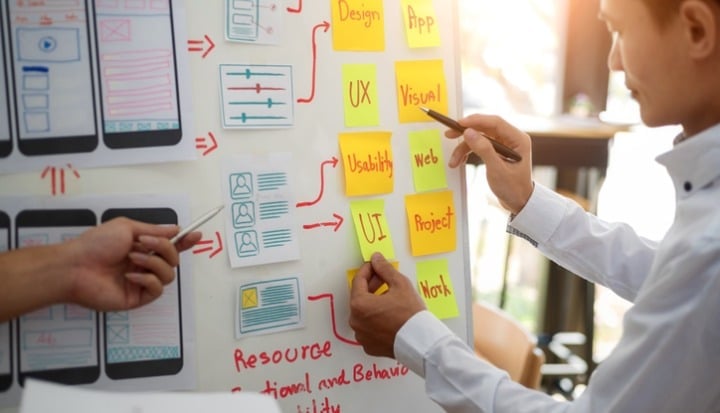Amidst the darkness of the pandemic, this community has shone. I have been humbled by the willingness of people to step forward and openly share their insights and knowledge – through articles, online events, or by engaging in our rapid Challenge-based collaborations – in an effort to mitigate the impacts of COVID-19 on the most vulnerable people and communities.
Here are the top 10 articles from this year, in reverse order based on readership. Most, though not all, relate to businesses’ response to the pandemic. Even those that do not, touch on some of the deeper issues that the pandemic has highlighted.
10. Practical Steps Large Companies Can Take to Support their MSME Partners through the COVID-19 Crisis
By Richard Gilbert, Challenge Director, Business Fights Poverty

While COVID-19 is hurting all businesses, MSMEs are particularly vulnerable, especially those cash-based informal businesses in developing countries, which have no social protection and are unable to access most forms of government emergency finance, or transition to remote working. An Action Toolkit has been published to help companies support their MSMEs partners.
9. Gender Equality is Everyone’s Business: How Can Companies Engage Men as Allies Across the Value Chain?
By Alice Allan, Challenge Director, Business Fights Poverty

A new report will reveals how companies have a unique opportunity to positively influence gender norms at scale by engaging #MenAsAllies to advance gender equality.
8. How Can Business Respond to the Increase in Domestic Violence During COVID-19?
By Alice Allan, Business Fights Poverty, Natalie Deacon, Avon Foundation for Women. and Jane Pillinger, Open University

Prior to COVID-19, already 1 in 3 women were estimated to experience violence in their lifetimes. Now, as the UN has noted, the economic and social stresses, as well as restrictions on movement and confinement, have dramatically increased the numbers of women and girls facing violence and abuse from intimate partners, in almost all countries.
7. Vulnerable Workers in Global Value Chains – Ambitious Collaboration Needed
By Caroline Ashley, Senior Adviser, Business Fights Poverty, and Dirk Willem te Velde, Director of Programme, Overseas Development Institute

Livelihoods of workers in the poorest and most vulnerable countries are being decimated even before the coronavirus sweeps in, as supply chains grind to a halt. This is disastrous for families, triggering an alarming resurgence in poverty. It is bad news for businesses that will want to rebuild, and for consumers in developed countries who depend on robust and resilient supply chains.
6. How Can Businesses Support their NGO Partners Through the Impact of COVID-19?
By David Norman, Challenge Director, Business Fights Poverty

Many NGOs are facing multiple operational and business continuity threats from the COVID-19 crisis and the efforts to contain it. An Action Toolkit has been developed following a Business Fights Poverty online discussion to explore how business should respond: what factors should they consider, and what actions can they take to support their NGO partners during these challenging times and into the future?
5. Building back with better jobs: An action toolkit to mainstream business models for decent work
By Amy Fairbairn, External Engagement Advisor, Business Fights Poverty

A new guide published by Business Fights Poverty, with support from The Lab Project at the International Labour Organization, aims to stimulate thinking and exchange within companies and external partners about what business models for more decent jobs should look like and how to mainstream these into business practice. It includes examples from leading companies including Hermes, Anglo American, Unilever, and others.
4. How Can Partnerships Create Rapid Innovation During COVID-19 Crisis?
By Annabel Beales, Challenge Researcher, Business Fights Poverty

COVID-19 requires rapid action, and it requires innovation. This unprecedented challenge demands that we overcome organisational and sector boundaries and join forces. A number of companies have managed to move extremely fast on innovating COVID-19 responses. Usually, these kinds of partnerships take months if not years to develop. Instead, these are taking days and weeks.
3. The Role of Businesses in Preventing Further Spread of COVID-19
By Myriam Sidibe, Senior Fellow, Mossavar-Rahmani Center for Business and Government, Harvard Kennedy School and Author, “Brands on a Mission: How to Achieve Social Impact and Business Growth Through Purpose”

Myriam Sidibe shares her top three pieces of advice on how businesses can get involved in solving this crisis responsibly
2. Protecting the Most Vulnerable: A Business Response Framework
By Zahid Torres-Rahman, CEO, Business Fights Poverty and Jane Nelson, Director, Harvard Kennedy School, Corporate Responsibility Initiative

In this paper, we set out a COVID-19 Response Framework for how businesses can support the most vulnerable.
1. How Business Can and Should Solve Social Problems
By Alex Edmans, Professor of Finance, London Business School, and Author, ‘Grow the Pie: How Great Companies Deliver Both Purpose and Profit’

Businesses need not face an either-or choice between purpose and profit. Companies that deliver value to society also typically generate higher long-term returns to shareholders. The key is for purpose to be pursued in a disciplined way that recognises that a company shouldn’t be all things to all people, but focus on where it has the greatest impact.










